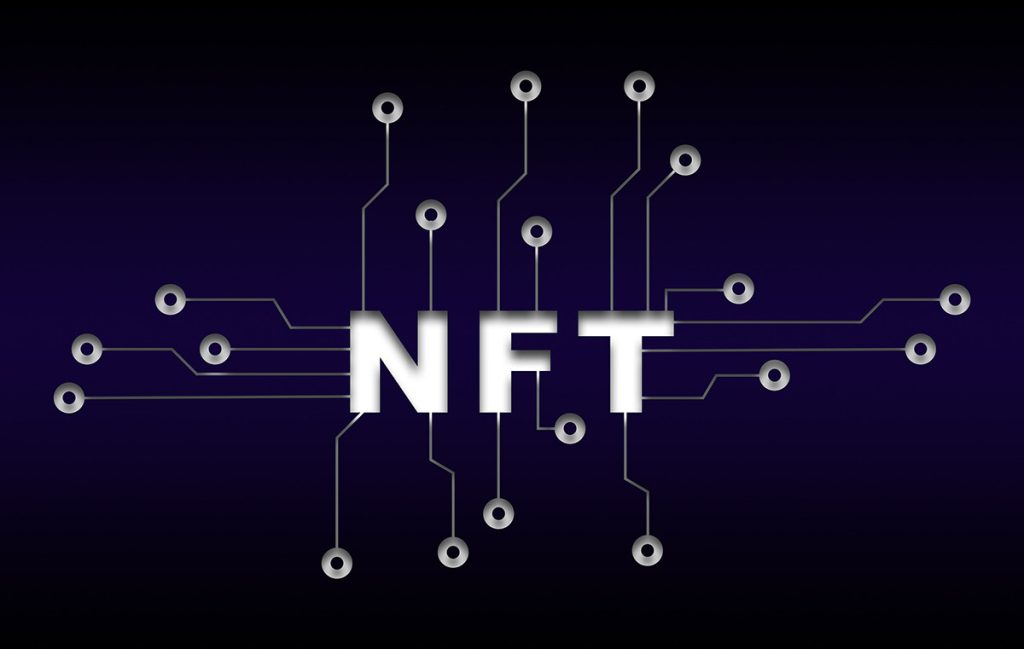NFTs in Marketing: Exploring the Intersection of Digital Assets and Branding

NFTs in Marketing: Exploring the Intersection of Digital Assets and Branding
The rise of NFTs (non-fungible tokens) has ushered in a new era of digital ownership and expression. These unique digital assets, authenticated by blockchain technology, are creating ripples across various industries, including marketing. As brands constantly seek innovative ways to engage and connect with their audience, the potential of NFTs in revolutionizing branding strategies in the digital age cannot be overlooked.
NFTs have rapidly gained relevance in the marketing landscape, offering a fresh canvas for brands to showcase creativity, exclusivity, and authenticity. From digital artwork to virtual real estate, the concept of owning a one-of-a-kind digital asset has captivated both creators and consumers, presenting new opportunities for brand collaborations, immersive experiences, and customer loyalty initiatives.
This blog post aims to delve into the evolving role of NFTs in marketing, shedding light on the transformative power they hold in reshaping brand-consumer interactions and the overall digital marketing ecosystem. Learn about the potential impact of NFTs on branding and explore how businesses can leverage this cutting-edge phenomenon to stay ahead in a fast-paced, digitally-driven world.
Understanding NFTs
NFTs, or non-fungible tokens, have revolutionized the digital landscape, introducing a new era of ownership and digital assets. These unique digital tokens are stored on a blockchain, leveraging its technology to ensure authenticity, traceability, and provenance.
Blockchain and NFTs
Blockchain technology plays a pivotal role in enabling the creation, verification, and ownership of NFTs. Utilizing smart contracts, each NFT is embedded with distinct attributes that authenticate its uniqueness, making them different from traditional cryptocurrencies. The decentralized nature of blockchain ensures the transparency and security of NFT transactions, allowing for a seamless and trustworthy environment for digital asset ownership.
NFTs in the Digital Landscape
The use of NFTs has expanded across various domains within the digital landscape, including digital art, collectibles, and virtual real estate. Artists and creators are leveraging NFTs to tokenize their works, providing a means for direct engagement with their audience while establishing ownership and scarcity in the digital realm. Moreover, the burgeoning market for digital collectibles and virtual real estate has seen a surge in NFT transactions, reflecting the increasing market value and widespread adoption of these digital assets.
The distinct characteristics of NFTs, coupled with the underlying blockchain technology, have ushered in a new paradigm, redefining the concept of ownership in the digital age. As NFTs continue to evolve and permeate various industries, their impact on branding and marketing strategies becomes an intriguing avenue to explore.
NFTs and Marketing
In the world of marketing, NFTs are emerging as powerful digital assets that allow brands to engage with their audience in innovative ways. By leveraging NFTs, brands can create unique marketing campaigns that resonate with their target audience and promote brand identity.
NFTs as Marketing Assets
NFTs offer a new avenue for brands to connect with their audience by offering exclusive digital assets, such as artworks, collectibles, or virtual experiences. These one-of-a-kind digital collectibles can be used as part of marketing strategies to reward loyal customers, generate buzz, and provide an immersive brand experience. By integrating NFTs into their marketing efforts, brands can tap into the growing interest in digital ownership and provide a new form of value to their audience.
Challenges in NFT Marketing
Despite the potential benefits, there are challenges that come with integrating NFTs into marketing strategies. One major obstacle is the scalability of NFTs, as creating and managing a large number of unique digital assets can be resource-intensive. Additionally, issues related to copyright and intellectual property rights may arise when utilizing NFTs for marketing, leading to potential legal and ethical concerns. Moreover, the level of consumer acceptance and understanding of NFTs presents a hurdle, as educating and reassuring the audience about the value of digital ownership is crucial for successful NFT marketing campaigns.
Overall, while NFTs open up exciting opportunities for brands to connect with their audience in new ways, careful consideration of the challenges is essential for a successful integration into marketing strategies.
Impact on Branding
In the fast-evolving landscape of marketing, NFTs have emerged as a game-changing tool, reshaping brand perception and value. Let’s delve into the impact of NFTs on branding and how they can profoundly influence consumer perceptions and loyalty.
Authenticity and Exclusivity
NFTs have the potential to infuse a brand with unparalleled authenticity and exclusivity, pivotal in an increasingly fast-paced market. By creating limited editions or unique digital assets as NFTs, brands can instill a sense of unparalleled value and rarity, thrilling consumers who seek exclusive experiences. This leveraging of NFTs to offer something seamless and unparalleled can set brands apart and generate a compelling sense of loyalty among consumers.
Brand Storytelling with NFTs
One of the most compelling ways NFTs impact branding is through immersive brand storytelling. By leveraging NFTs, brands can embark on a quest to tell their story in unprecedented ways, creating an emotional connection with their audience. NFTs enable brands to craft captivating narratives, offering consumers a journey of unrivaled engagement. This can foster resilient emotional connections with the brand, elevating consumer loyalty and propelling the brand into the cutting-edge of immersive marketing experiences.
NFTs and Consumer Engagement
With the rise of NFTs in the marketing landscape, brands are realizing the potential of these digital assets in revolutionizing consumer engagement strategies and enhancing the overall customer experience. Let’s explore how NFTs are reshaping the dynamics of consumer engagement and community building.
Interactive NFT Campaigns
Brands are increasingly leveraging interactive NFT campaigns to engage consumers in co-creation, gamification, and participatory experiences. By integrating NFTs into interactive campaigns, brands can empower consumers to become active participants in shaping brand narratives and digital experiences. Through the creation of unique NFTs, consumers can engage in co-creation by contributing to the design process, thereby fostering a sense of ownership and personal connection. Additionally, gamification elements within NFT campaigns can introduce interactive challenges and rewards, offering consumers an immersive and rewarding brand experience. This approach not only enhances consumer engagement but also amplifies brand visibility and loyalty, creating a dynamic and captivating marketing strategy.
Community Building through NFTs
NFTs play a pivotal role in fostering brand communities, incentivizing user-generated content, and nurturing loyal fan bases. Brands can utilize NFTs to provide exclusive access and benefits to community members, incentivizing active participation and content creation. Through NFT-based rewards and memberships, brands can cultivate a sense of belonging and exclusivity within their communities, driving user engagement and brand advocacy. Furthermore, NFTs enable brands to implement decentralized ownership models, empowering community members to become stakeholders in the brand’s ecosystem. This not only cultivates a deeper sense of loyalty and commitment but also creates a collaborative environment where consumers actively contribute to the brand’s evolution. By leveraging NFTs as community-building tools, brands can forge strong and enduring relationships with their audience, fostering a vibrant and interconnected brand community.
In the realm of consumer engagement, NFTs are proving to be a dynamic and influential asset, offering brands innovative avenues to connect, interact, and collaborate with their audience. As the NFT landscape continues to evolve, its potential to redefine consumer-brand relationships and elevate the customer experience remains a compelling and transformative force in the marketing arena.
Regulatory and Ethical Considerations
When diving into the world of NFTs in marketing, it’s crucial to consider the regulatory and ethical implications. Whether it’s navigating legal frameworks or addressing concerns about environmental sustainability, brands must ensure they are on the right side of regulations and ethical practices.
Legal Framework and Compliance
Navigating the legal terrain is crucial when integrating NFTs into marketing strategies. It’s essential for brands to ensure compliance with intellectual property laws, data privacy regulations, and consumer rights. With the unique nature of digital assets, brands must take proactive measures to safeguard intellectual property and consumer data while respecting privacy rights. This involves understanding and adhering to copyright laws, trademarks, and licensing agreements to avoid infringement. Additionally, being transparent with consumers about the ownership and origins of the NFTs is pivotal for building trust and credibility.
Environmental Sustainability
The rise of NFTs has sparked conversations about its environmental impact, particularly in terms of energy consumption and carbon footprint. Brands venturing into NFT initiatives need to consider the environmental implications and explore ways to minimize their carbon footprint. As the energy-intensive nature of blockchain technology comes under scrutiny, brands can embark on sustainability-driven approaches by supporting eco-friendly blockchain platforms or offsetting their carbon emissions through environmental projects. By advocating for sustainable practices and transparently communicating their efforts, brands can navigate the ethical dimensions of NFTs in marketing, resonating with environmentally conscious consumers.
By considering the legal and ethical implications of NFTs in marketing, brands can utilize the potential of digital assets while upholding regulatory compliance and ethical standards, paving the way for responsible and sustainable utilization in their marketing endeavors.
Future Trends and Predictions
The future of NFTs in marketing is an exciting realm, offering a glimpse into the potential trends and developments that could shift the landscape of brand promotion and customer engagement. As we peer into the crystal ball of digital assets and branding, several key trends and predictions emerge, signaling the evolution of NFTs in the marketing domain.
Integration of NFTs in Loyalty Programs
The integration of NFTs into loyalty programs is poised to revolutionize customer retention strategies for businesses. By leveraging the unique properties of NFTs, brands can create exclusive digital collectibles and rewards that resonate with their audience, reinforcing brand loyalty and incentivizing ongoing engagement.
Personalized NFT Experiences
With advancements in technology, we anticipate a surge in personalized NFT experiences tailored to individual consumer preferences. Brands will utilize the power of NFTs to deliver custom digital assets, such as limited-edition virtual merchandise or one-of-a-kind interactive content, amplifying consumer interactions and fostering a deeper sense of brand affinity.
Rise of NFT-Backed Influencer Marketing
The convergence of NFTs and influencer marketing is on the horizon, unlocking opportunities for content creators and social media personalities to tokenize their influence. NFT-backed influencer collaborations will enable brands to tap into niche audience segments, driving authentic and impactful endorsements through exclusive digital collectibles and immersive brand experiences.
Enhanced Transparency and Authenticity
As the NFT space matures, we anticipate a heightened emphasis on transparency and authenticity in marketing campaigns. Brands will utilize NFTs to provide verifiable proof of ownership for digital assets, instilling trust among consumers and combating counterfeit products, thereby reinforcing the credibility and integrity of their branding initiatives.
Metaverse Integration for Brand Engagement
The integration of NFTs within the metaverse is set to reshape brand engagement strategies, offering immersive and interactive experiences within virtual environments. Brands will pioneer NFT-driven activations and virtual events, forging meaningful connections with audiences in the ever-expanding metaverse, transcending traditional marketing touchpoints.
The future holds a tapestry of innovative possibilities at the intersection of NFTs and marketing, propelling the industry into uncharted territories of creativity and consumer engagement. With these potential trends and predictions, businesses are poised to unravel new dimensions of brand storytelling and customer interactions, utilizeing the transformative power of NFTs to shape the future of marketing.
Takeaways
In conclusion, the intersection of NFTs and marketing presents a transformative opportunity for brands in the digital realm. By embracing NFTs as digital assets, brands can unlock new levels of engagement and loyalty from their audience. The ability to create unique, ownable digital assets opens doors for innovative branding strategies, offering a way to stand out in a crowded digital landscape. As brands navigate this new territory, they must stay agile and open-minded to harness the full potential of NFTs in reshaping the future of marketing.










